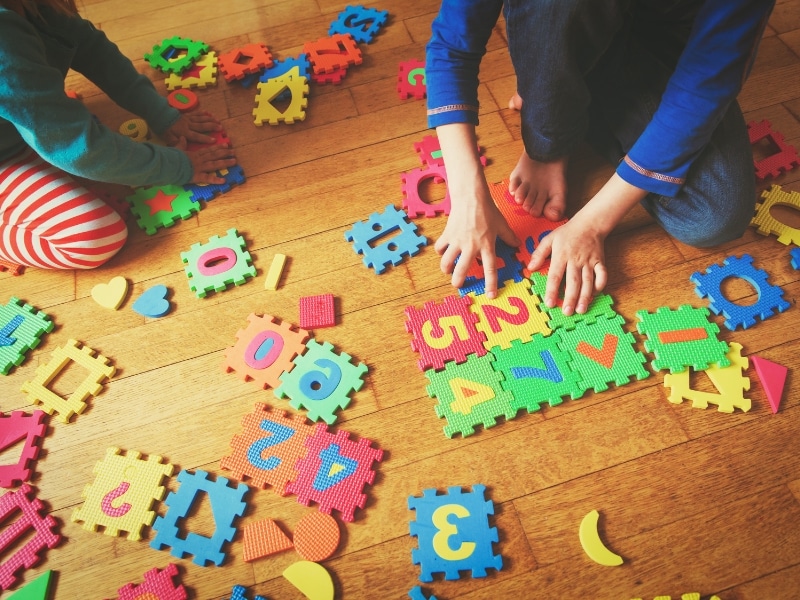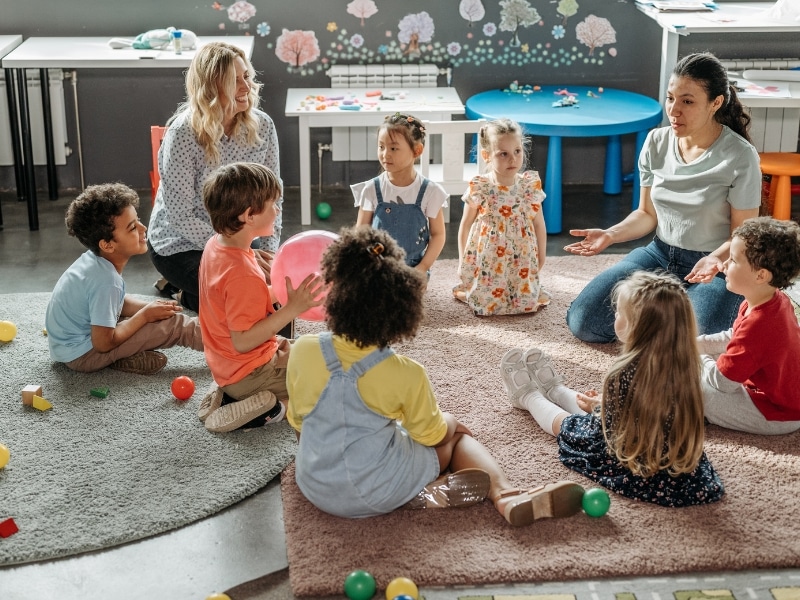Why Is Early Childhood Education Important For Your Child?

Early childhood education is a crucial investment in your child’s future. It lays the groundwork for lifelong learning, fostering their cognitive, emotional, and social development. These formative years shape their understanding of the world and equip them with essential skills for success. This guide will explain the importance of early childhood education and how it benefits your little one.
What is early childhood education, and why does it matter?
Early childhood education refers to structured learning experiences provided to children from birth to six years of age. It focuses on fostering physical, cognitive, emotional, and social development during this formative stage. Here’s why it matters:
- Brain development: The first six years of a child’s life are crucial for brain development. High-quality education during this period creates strong neural connections, supporting critical thinking and problem-solving skills.
- Foundation for lifelong learning: Early education builds a strong academic and emotional foundation, helping children adapt to school and other structured environments.
- Social skills: It teaches children to interact, share, and cooperate with peers and adults, fostering empathy and teamwork.
- Emotional resilience: By learning to manage emotions and build confidence, children develop resilience that helps them face future challenges.
- Holistic growth: Early education nurtures the whole child, addressing physical, emotional, and intellectual needs.
How does early childhood education support your child’s development?
Early childhood education can significantly impact your child’s development. Through engaging activities, your child will:
- Language development: Activities like storytelling and group discussions enhance vocabulary and communication skills. Additionally, early education plays a crucial role in helping your child overcome reading difficulties by providing the foundational skills and confidence needed to develop strong literacy abilities.
- Cognitive skills: Problem-solving games and hands-on activities encourage logical thinking and creativity.
- Motor skills: Physical activities improve coordination and gross motor skills, while arts and crafts enhance fine motor skills.
- Emotional intelligence: Role-playing and group activities teach children to understand and express their emotions effectively.
- Independence: Structured routines and guided activities help children develop a sense of responsibility and self-reliance.
Why is a play-based learning curriculum effective for your child?
Play-based learning is a powerful approach that can significantly benefit your child’s development. By engaging in hands-on activities, your child will naturally develop curiosity and a love of learning.
- Active learning: Children learn best by doing. Play-based activities like building blocks and puzzles stimulate critical thinking and problem-solving.
- Engagement: Fun and interactive sessions keep children interested, making learning enjoyable.
- Creativity: Open-ended play encourages imagination and innovation.
- Social skills: Collaborative play teaches teamwork, negotiation, and conflict resolution.
- Adaptability: By exploring diverse scenarios, children develop flexibility and resilience.

How can outdoor play enhance your child’s growth?
Outdoor play is a powerful tool for your child’s growth. Spending time outdoors can help your child develop physically, mentally, and socially.
- Physical fitness: Running, climbing, and jumping strengthen muscles and improve cardiovascular health.
- Coordination and balance: Activities like hopping and balancing on beams enhance motor skills.
- Exploration: Outdoor settings provide endless opportunities for discovery and learning about the environment.
- Social interaction: Group games foster cooperation, leadership, and communication skills.
- Stress relief: Fresh air and physical activity help reduce anxiety and promote relaxation.
What makes early childhood education a foundation for school readiness?
Preparing children for school involves more than teaching letters and numbers. Early childhood education equips them with essential skills and habits for academic success.
- Routine and structure: Familiarity with schedules helps children transition smoothly into a school environment.
- Pre-academic skills: Early exposure to literacy and numeracy concepts lays the groundwork for future learning.
- Attention and focus: Activities like storytime and puzzles enhance concentration and patience.
- Peer interaction: Interacting with other children builds confidence and teamwork skills.
- Problem-solving: Engaging in challenges fosters critical thinking and decision-making abilities.
How does early childhood education promote social and emotional well-being?
As a parent, you want your child to develop strong social and emotional skills. This development highlights the importance of early childhood education in a child’s life. A nurturing environment can help your child feel valued, safe, and encouraged. Additionally, positive parenting practices can further empower your child to build self-esteem, emotional intelligence, and positive social relationships.
- Confidence building: Activities that promote self-expression boost self-esteem.
- Empathy development: Group activities teach children to understand and care about others’ feelings.
- Conflict resolution: Children learn to navigate disagreements constructively.
- Emotional regulation: Mindfulness and guided play help children manage their emotions effectively.
- Sense of belonging: A supportive community fosters positive relationships and a sense of security.
Understanding the impact of daycare on social development is crucial. It helps children build essential interpersonal skills like sharing, communication, and empathy, setting the foundation for future relationships.
Why is choosing the right early childhood education centre essential for your child?
Understanding the importance of choosing the right early childhood education centre is key to your child’s future. The right environment can significantly impact your child’s development, shaping their future.
- Qualified educators are passionate and experienced teachers who ensure high-quality care and learning.
- Personalised programs, such as toddler and kindergarten curriculums, address specific developmental milestones.
- Safe environments, prioritising children’s safety and comfort, are provided.
- Engaging and interactive play-based activities foster holistic development.

Enrol your child in daycare for 2025 at Innocent Minds
Ensure your child’s bright future with daycare enrollment for 2025 at Innocent Minds, where we provide a nurturing and enriching environment tailored to support their growth and development. Our daycare and early childhood education programs in Punchbowl and Yagoona provide a secure, engaging, and caring environment for children aged 0-6. With our play-based learning approach, caring staff, and qualified educators, your child will thrive socially, emotionally, and academically.
Don’t wait to secure your child’s place. Contact Innocent Minds for more information and give your child the best possible start in a safe, engaging, and supportive environment.
